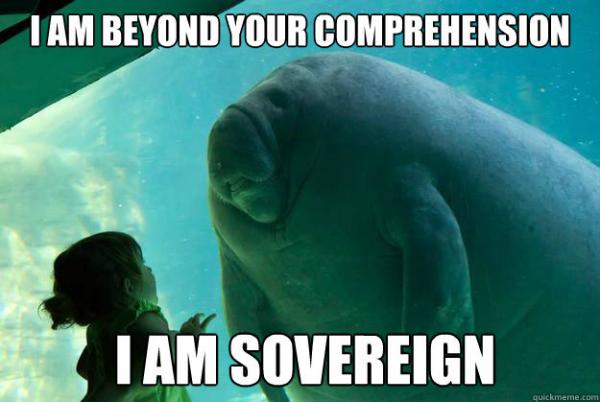By Kate Prengaman, Yakima Herald-Republic
As the federal government moves toward approving the Yakama Nation’s retrocession petition — which returns civil and criminal jurisdiction over tribal members on the reservation from the state back to the tribe — officials in Yakima and Klickitat counties are concerned that some questions remain unanswered.
In Klickitat County, commissioners want to know how retrocession would affect a long-standing boundary dispute, and officials in Yakima County want to ensure there’s a formal plan detailing how tribal and local law enforcement agencies will work together once the retrocession is approved.
The concerns arose, in part, because retrocession is rare. The Yakama Nation was the first tribe to propose it since state lawmakers approved the process in 2011 and Gov. Jay Inslee signed the retrocession proclamation in January 2014.
The Yakama Nation’s leaders and Inslee praised it as a strong step toward greater sovereignty for the tribe to regain authority over its people.
It’s known as retrocession because it returns certain criminal and civil authorities to the tribal government that the state took over in 1963 under a federal law known as Public Law 280.
Once approved by the Secretary of the Interior, tribal police and tribal courts would have jurisdiction over issues involving tribal members on the reservation while the state would retain its authority over all criminal cases involving nontribal members.
It sounds straightforward, but the details get complicated quickly.
Since the 1.2 million-acre reservation is actually a patchwork of tribal trust land, incorporated towns and lands within the reservation that are owned by nontribal members, it’s likely to create logistical challenges for law enforcement.
Yakima County Commissioner Kevin Bouchey said the county, along with the cities of Toppenish and Wapato, are worried that the petition might be approved before law enforcement protocols are agreed upon.
“We’re not opposed to the petition, we just want to figure out the details before the Secretary of the Interior signs off on it, rather than after the fact,” Bouchey said. “It comes down to public safety for tribal members and nontribal members on the reservation and we need an established working relationship to do that.”
Klickitat County Commissioner David Sauter echoed Bouchey’s concerns. Development of this type of formal agreement between law enforcement agencies is encouraged in the state’s retrocession law, but is not required.
Bouchey said the county has drafted a letter expressing its concerns to the Bureau of Indian Affairs (BIA), which it plans to send this week.
A spokeswoman for the federal agency confirmed in an email that the petition is under review by the BIA with input from the Department of Justice, but did not offer any details. Request for comment from the Yakama Nation’s Tribal Council was not returned.
Klickitat County leaders sent their letter to BIA Secretary Ken Washburn in April to request clarification on how the governor’s proclamation defines the exterior boundaries of the Yakama Reservation. Sauter recently traveled to Washington, D.C., to discuss the issue with the agency and Washington’s elected officials as well.
The county’s concern centers on a disputed 95,000 acres of land to the southeast of Mount Adams that is known as “Tract D.” It includes Glenwood, an unincorporated community of about 700.
The Yakama Nation has long claimed the land as within its boundaries, including in its published maps. But Klickitat County officials say the land has clearly been in the county’s jurisdiction under state and federal law for more than 100 years.
The concern for Glenwood residents is that the retrocession proclamation says it applies to everything within the reservation’s boundaries, and the county wants reassurance that the state and federal interpretation of those reservation boundaries doesn’t change, said Klickitat County Prosecuting Attorney David Quesnel.
“There’s been issues going on for years, like the disputes over liquor licenses a few years ago, because the tribe has taken the position that Tract D is within its exterior boundaries,” Quesnel said. “We want to make it abundantly clear that Tract D would not be included.”
Glenwood-area residents told the Goldendale Sentinel that they didn’t want to have to go to the Yakama Nation’s Tribal Court to get divorced or to deal with traffic tickets or criminal charges.
But those concerns appear unfounded because the retrocession proclamation only returns jurisdiction over tribal members to the tribe, it doesn’t give the tribe authority over nontribal members, said Yakima County civil prosecutor Terry Austin.
The exceptions would be for civil matters such as domestic relations or juvenile delinquency for families in which one parent is a tribal member. Then, either the tribal court or state courts could decide the case.
As far as the boundary dispute, a spokeswoman for the governor’s office said the retrocession proclamation deals only with jurisdiction and does not in any way change existing reservation boundaries. In fact, the governor does not have the authority to change reservation boundaries, which is a federal issue.
In a 2000 federal court case over the Yakama Nation’s attempts to ban alcohol sales on the reservation, the state argued that “Tract D was not historically considered to be within the surveyed boundaries of the Yakama Reservation” and the state does not recognize it as being within the exterior boundaries.
The court later threw out the tribe’s attempts to ban alcohol sales in the reservation’s incorporated towns where a majority of the nontribal residents live, limiting the tribe’s authority to regulate nontribal members.
The retrocession petition also keeps existing limits on the tribe’s authority over reservation residents who are not tribal members, but expands its ability to self-govern. Once the details get worked out, county officials say they support that.
“They have a right to self-regulation and we’re not trying to interfere with that; we just want clarification,” Quesnel said.





